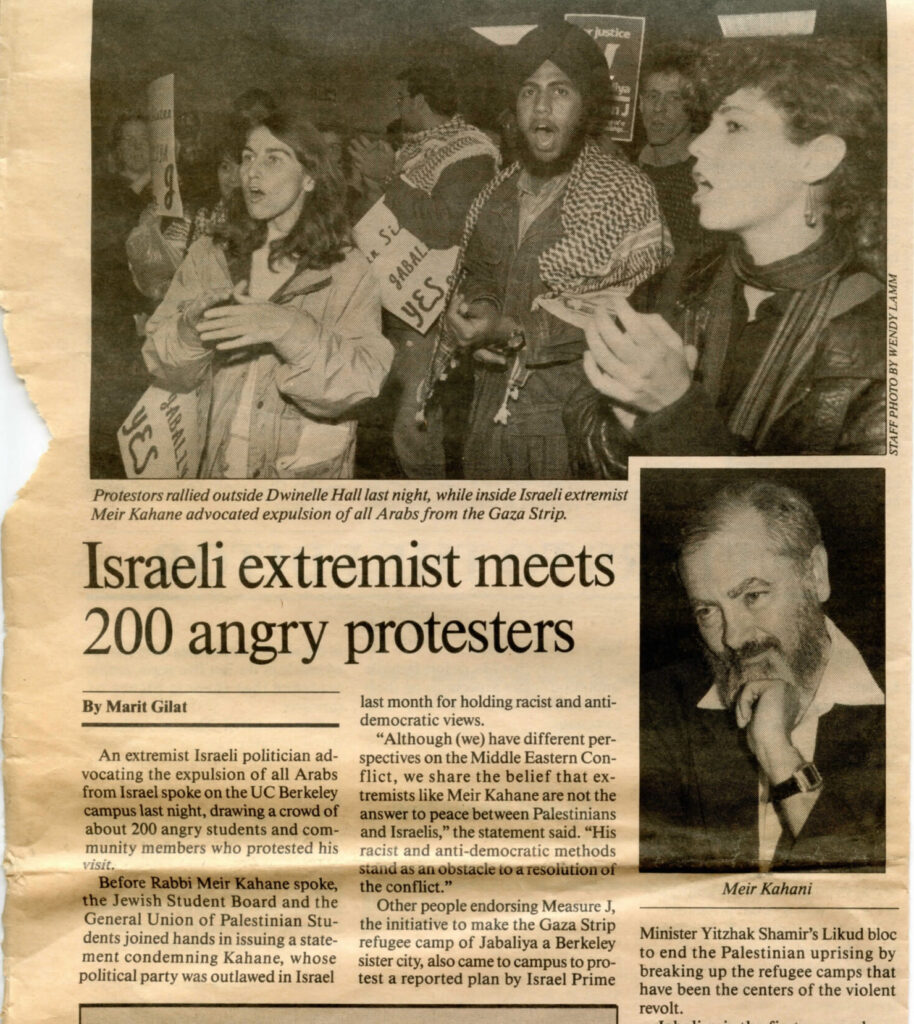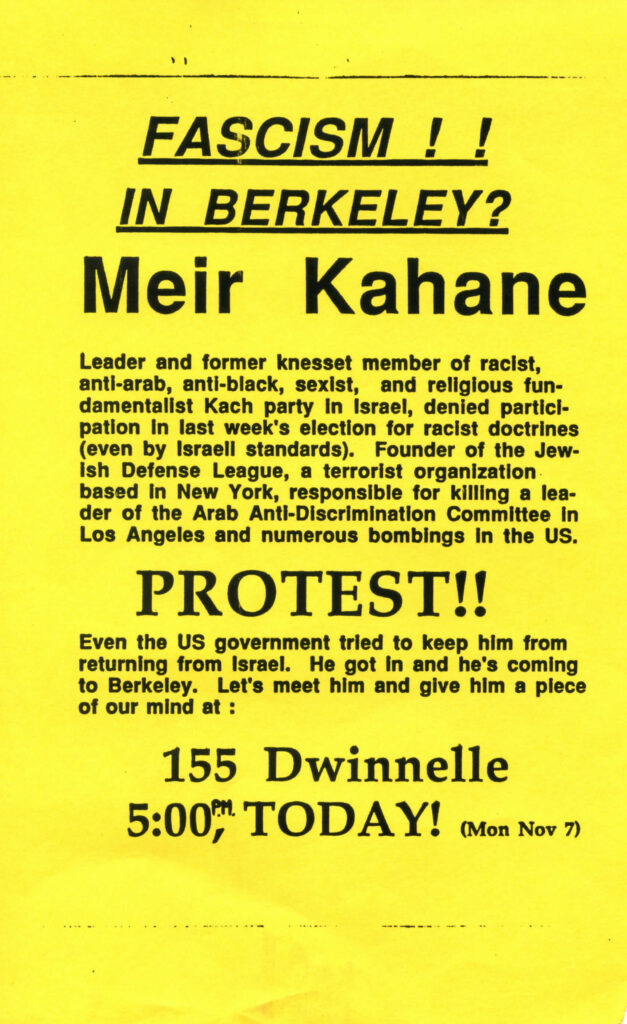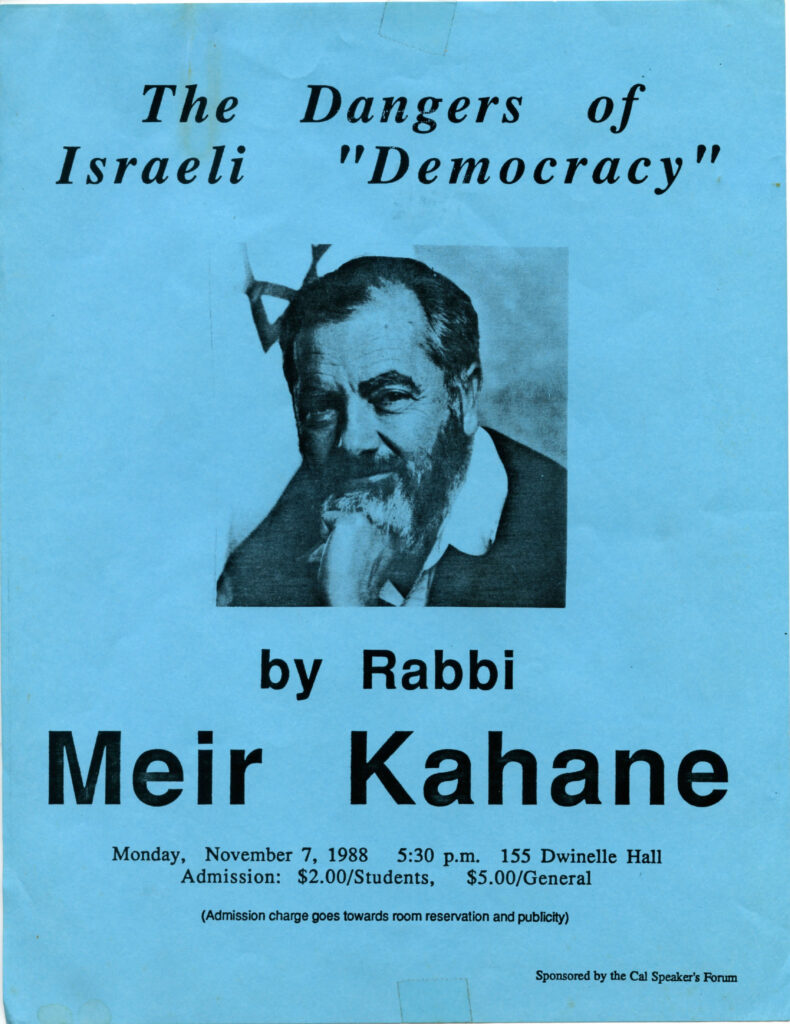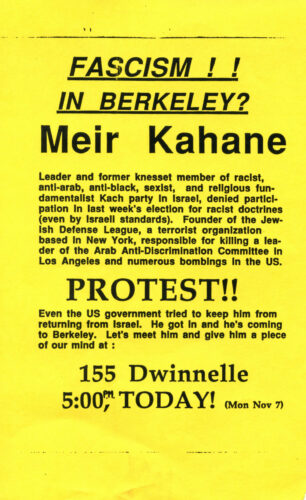
On Monday, November 7th, 1988, Orthodox rabbi, Zionist politician, and Knesset member Meir Kahane came to UC Berkeley to speak at Dwinelle Hall. Born Martin Kahane in Brooklyn in 1932, Kahane was key figure in the Jewish extremist movement and the development of fascist and racist ideologies in Zonist and Israeli politics.
Twenty years before his visit, Kahane was a founding member of the Jewish Defense League (JDL) in 1968 – a far-right terror organization that advocated for the arming of Jews against any threats of anti-semitism. Kahane’s followers murdered dozens of people and injured hundreds of others in numerous violent attacks against Palestinians, Americans, and others in Israel, the occupied Palestinian territories, and the United States. Throughout his political career, Kahane supported the complete expulsion of all Arabs from Palestine, openly advocated for the killing of Palestinians and for Jews to take up arms against anyone critiquing the establishment & expansion of Israel. Kahane himself was arrested approximately 70 times in the US and Israel for planning and carrying out violent attacks but never received any serious punishment for his crimes.
Invited by the Cal Speakers Forum, student forum member Steven Mazer expressed that “it’s hard to get good solid speakers in Berkeley. (Kahane) is a good and controversial speaker.” Kahane’s speech coincided with a ballot measure being voted on in Berkeley, Measure J, which would have formally established the Jabaliya refugee camp in Gaza as a recognized sister city. The opposition campaign to the measure raised over $100,000, in contrast to the less than $5000 raised in support of the ballot item. On Nov. 7th, over 200 people came out to protest the night of Kahane’s speech to both condemn his racist and Zionist views, as well as in support of Measure J. The protestors included anti-Zionist students and members of the Jewish Student Board, in addition to Palestinian and Palestinian solidarity organizers. Students repeatedly disrupted his speech, heckling and yelling in vehement disagreement of his politics.
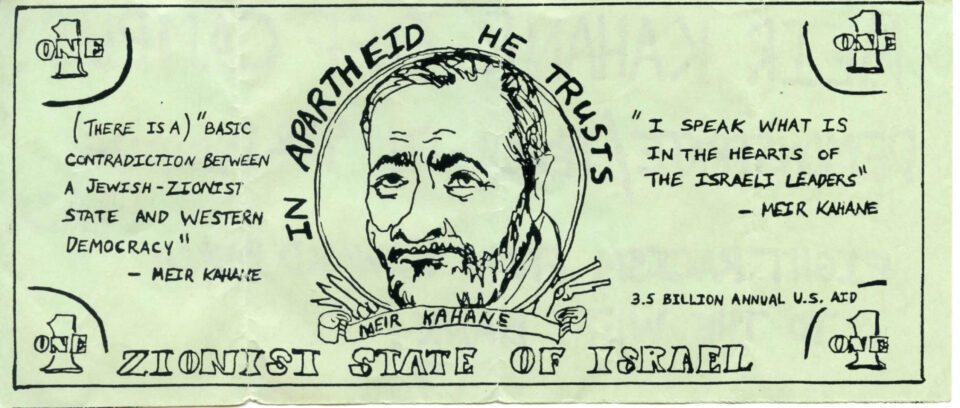
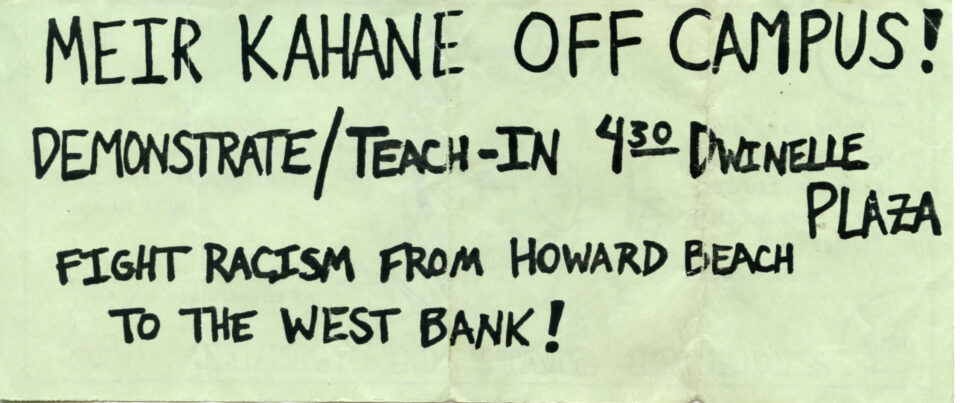
36 years later, Kahane’s lecture at UC Berkeley foreshadows the normalization of Zionist rhetoric on university campuses. Former IDF soldiers, Israeli academics and far right speakers are routinely invited to speak and their perspectives and ideologies are legitimized by US colleges and universities. This often accompanies a criminalization and suppression of Palestinian viewpoints, dissent and protest against these invitations. Furthermore, rhetoric like Kahane that was considered extremist and fringe in the 1980s is now completely mainstreamed – both in the US media and also in Israeli politics. One example of this was the highly coordinated, police sanctioned May 2024 Zionist attack on the UCLA Pro-Palestinian encampment as well hundreds of instances of physical intimidation, surveillance, violence, and hate speech that have occurred since October 2023.
However, even despite a shrinking terrain to resist, for Cal’s legacy of anti-Zionist struggle has continued as students held an encampment in front of Sproul Hall for over a month and also briefly occupied a building on campus. Grounding and nourishing ourselves in this legacy of resistance and drawing connections between these moments in history continues to reveal that when we organize and commit to struggle – victory is possible.
